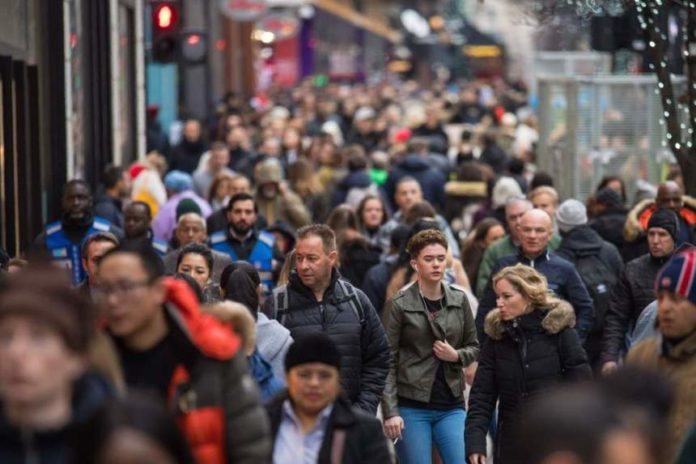LONDON: British workers received their biggest pay rise in a decade in the three months to October as the country’s strong labour market showed no sign of weakening ahead of Brexit, official figures showed on Tuesday.
Average weekly earnings, including bonuses, rose by an annual 3.3 per cent, their biggest increase since the three months to July 2008 and comfortably beating a median forecast of 3.0 per cent in a Reuters poll of economists.
The Bank of England has said it will need to raise interest rates gradually to offset inflation pressures from the labour market, and forecast slower wage growth for the end of 2018 than Tuesday’s official figures suggest.
Britain’s economy has slowed since the 2016 Brexit referendum but unemployment has continued to fall sharply, putting pressure on employers to raise pay.
Tuesday’s figures showed unemployment remained close to its lowest level since the 1970s at 4.1 per cent.
“Finally, British worker’ pay is starting to claw back some of the ground it’s given up during the ‘lost decade’ since the financial crisis,” Tom Stevenson, an investment director at fund managers Fidelity International, said.
“However … we are still not out of the woods. With the ongoing political and economic uncertainty, the recent steps forward could be reversed. Britain’s pay growth continues to lag our main competitors since the financial crisis,” he added.
Total earnings, excluding bonuses, also rose by 3.3 per cent in the three months to October, the Office for National Statistics said, the biggest rise since the end of 2008.
The proportion of the working-age population in a job returned to a record high 75.7 per cent as the number of people in work rose by 79,000, more than any forecast in the Reuters poll.
Sterling and British share and government bond prices, which have reacted strongly to the progress and setbacks in Prime Minister Theresa May’s attempts to steer Britain out of the European Union, were little changed by the data.
Stronger wage growth in Britain could help the economy as it prepares to leave the EU in March.
Wages are rising more slowly than the 4 per cent increases seen before the financial crisis. But real earnings, adjusted for inflation, rose by the fastest since the end of 2016, up 1.1 per cent, in the three months to October.
How long that improvement in spending power lasts is likely to depend on May’s ability to avoid a no-deal Brexit.
The pound will probably fall sharply — pushing up inflation and hurting household budgets — if Britain does not secure a transition deal to ease its way out of the EU.




